Nutrition planning for expecting mothers can be a big challenge for health professionals. There are certain nutrients that are absolutely needed in pregnancy, but often mothers-to-be are experiencing nausea, acid reflux, food aversions, and fatigue. While choosing the right recipes to meet nutrient requirements is important, it’s also important to understand that mothers-to-be might not know where to begin or have the time and energy to implement nutrition guidance.
This is where pre-and postnatal expert Dr. Aviva Romm shines.

Dr. Aviva Romm is a midwife, herbalist, and Yale-trained MD who has been bridging the best of traditional medicine with good science for over three decades. She helps women take their health back, especially when it comes to pre-and postnatal care.
“Nutrition to me is one of the most important aspects of prenatal care and is the foundation of all of my approaches. Sadly, prenatal nutrition education is sorely lacking in most prenatal care and studies have shown that most women go into their childbearing years low in a whole host of nutrients. Eating a quality diet not only improves the likelihood of conception, but improves the overall health of mom and baby during pregnancy and beyond.”
Dr. Romm knows that while there is a whole host of information available to soon-to-be moms, there is a problem with getting the right information into their hands in the best way possible.
“A major pain point for pregnant and new mamas is - what should I eat? It can be confusing and overwhelming. On top of it most women are really busy - also managing work and possibly toddlers or older children. So even when they know what to eat, planning meals is another time-consuming obstacle.”
The Importance of Meal Planning for Prenatal Women
Meal plans play a very important role in the work Dr. Romm does for her clients. Without a meal plan, the information about what women should eat, how much they should eat, and the nutrients they should focus on becomes isolated guidance that they’re unsure of how to apply. A meal plan, complete with recipes that are easy, fun, and simple is a roadmap for them to follow so they can apply all of their customized nutrition recommendations.
“Being able to now give women personalized meal plans is such a relief to my clients - it truly takes the hardest part out of eating well. I use meal plans in my practice because as much as we educate on what to eat, it doesn’t always address the more nuanced details of implementing this into your life. Meal plans give women a tangible and accessible way to learn “how” to eat well - and discover that healthy eating is actually quite delicious - and not so hard.”
While focusing on prenatal nutrients is incredibly important, Dr. Romm’s approach goes beyond that. She believes that it’s important to meet your client where they’re at, which means giving them a meal plan that takes into consideration their current lifestyle.
“Like all women, pregnant women likely have a myriad of competing demands in their daily life on top of normal pregnancy concerns and dealing with pregnancy-related symptoms. Nutrition plans shouldn’t be overly complicated, they should be simple, delicious, and bring fun to the kitchen!”
Dr. Romm uses That Clean Life to make this possible. That Clean Life allows her to apply filters that focus on key nutrients, ingredients, and the amount of time a recipe takes while also considering an expecting mother’s food aversions or intuitive cravings.
“My nutrition plans are first and foremost always based on nutrient-dense, whole foods and are primarily plant-based. From there, I make sure to emphasize foods that provide key nutrients to support mom and baby’s health: especially protein, complex carbohydrates, quality fats, iron, folate, and choline. We need to encourage women to really tune in and listen to their bodies, using meal plans in a way that is supportive and truly nourishing, and ideally, customized to their changing food preferences and tolerances during pregnancy.”
Here are the meals that Dr. Romm most often adds to her prenatal meal plans to keep moms and moms-to-be supported and feeling their best throughout pregnancy.
Breakfast: Smoothies & Batch Cooking
Dr. Romm knows the value of cooking once and enjoying the same meal multiple times, especially for expecting moms.
This Kale & Red Pepper Frittata comes together in 30 minutes and makes four servings so her clients can cook once and enjoy it throughout the week. Leftovers reduce the amount of time spent in the kitchen, which means expecting moms can spend more time getting ready for the baby to arrive.
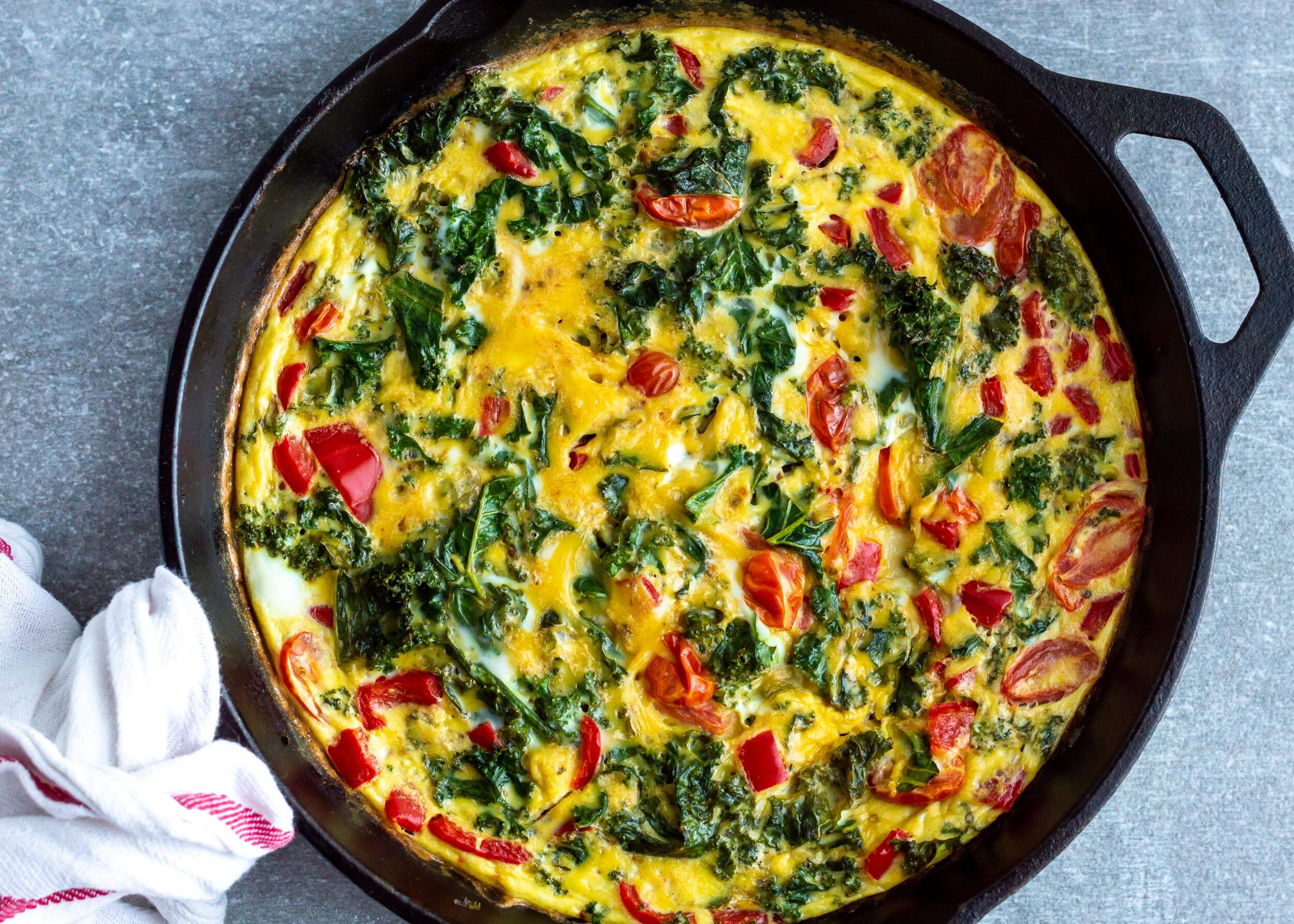
Dr. Romm also highlights that this recipe is rich in important prenatal nutrients like choline, protein and can be topped with avocado for monosaturated fats.
“It’s a really beautiful, simple meal that is wonderful for breakfast or dinner (and leftovers!) Eggs are one of the only food sources that are especially rich in choline - essential for a baby’s brain development - and of course a great source of protein. I recommend topping with avocado, which is one of the best sources of monounsaturated fats for pregnancy and fertility.”
If cooking eggs and veggies seems a little too much for expecting moms, another easy and delicious way to get nutrients with little effort is through smoothies, like our Tahini Green Smoothie.
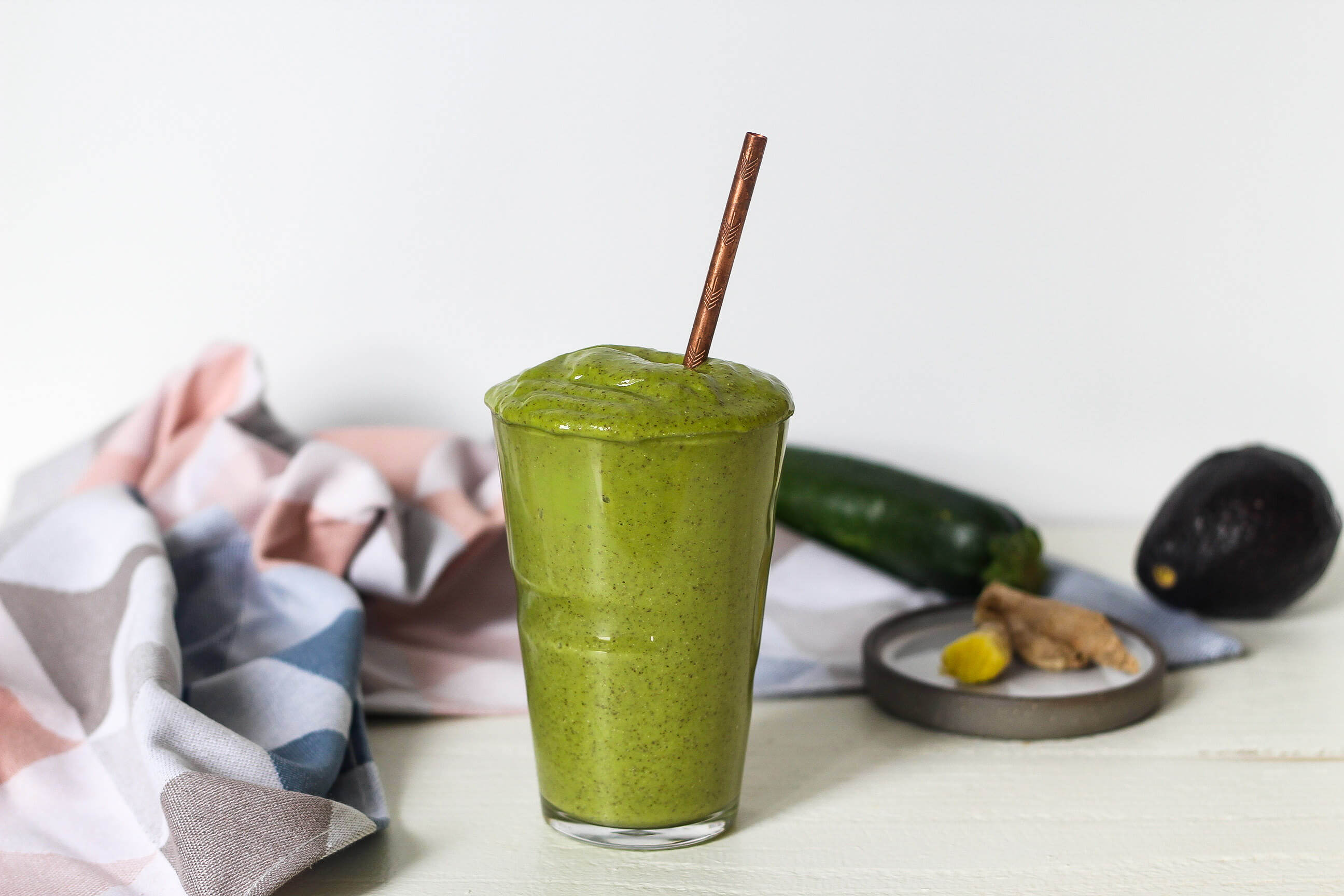
Dr. Romm loves this recipe as it contains ginger and seeds.
"Smoothies are a great way to pack in nutrition, especially if women are struggling with prenatal nausea, which the ginger in this recipe can provide extra relief for. I encourage all pregnant women to eat seeds daily so I love that this smoothie blends tahini and chia seeds. Both are excellent for hormone health and fertility."
Lunch & Snacks: Simple, Whole Ingredients
Lunch also needs to come together quickly and easily, which is why our Salmon with Coconut Kale recipe is a go-to for Dr. Romm. It focuses on simple, whole ingredients that pack really important nutrients for expecting mothers including omega 3 fatty acids, folate and iron.
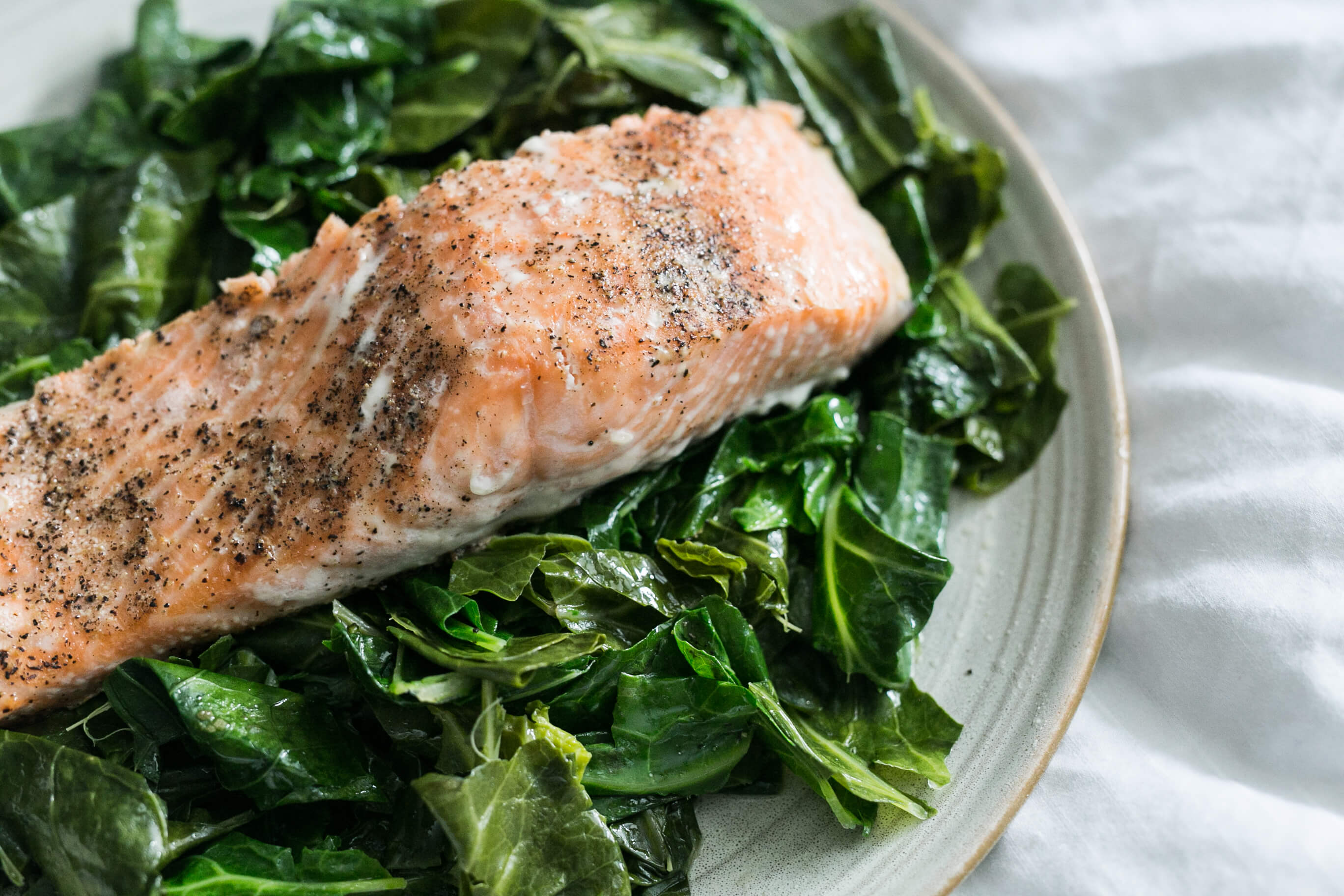
"I often recommend this with a complex carbohydrate like quinoa for a complete, nutrient-dense meal. Nutritionally, salmon is a really great source of omega 3 fatty acids, which are very supportive of a baby’s brain development and forming the nervous system. Dark leafy greens provide folate, important for the formation of baby’s chromosomes and nervous system, and iron, which helps prevent anemia associated with adverse fetal and maternal outcomes."
Simple snacks, like our Hummus & Veggies Snack Box, are also necessary to keep prenatal clients satisfied. Late into pregnancy, eating large meals usually results in acid reflux, so keeping snacks simple and nutrient-dense is important for comfort as well as nutrition.
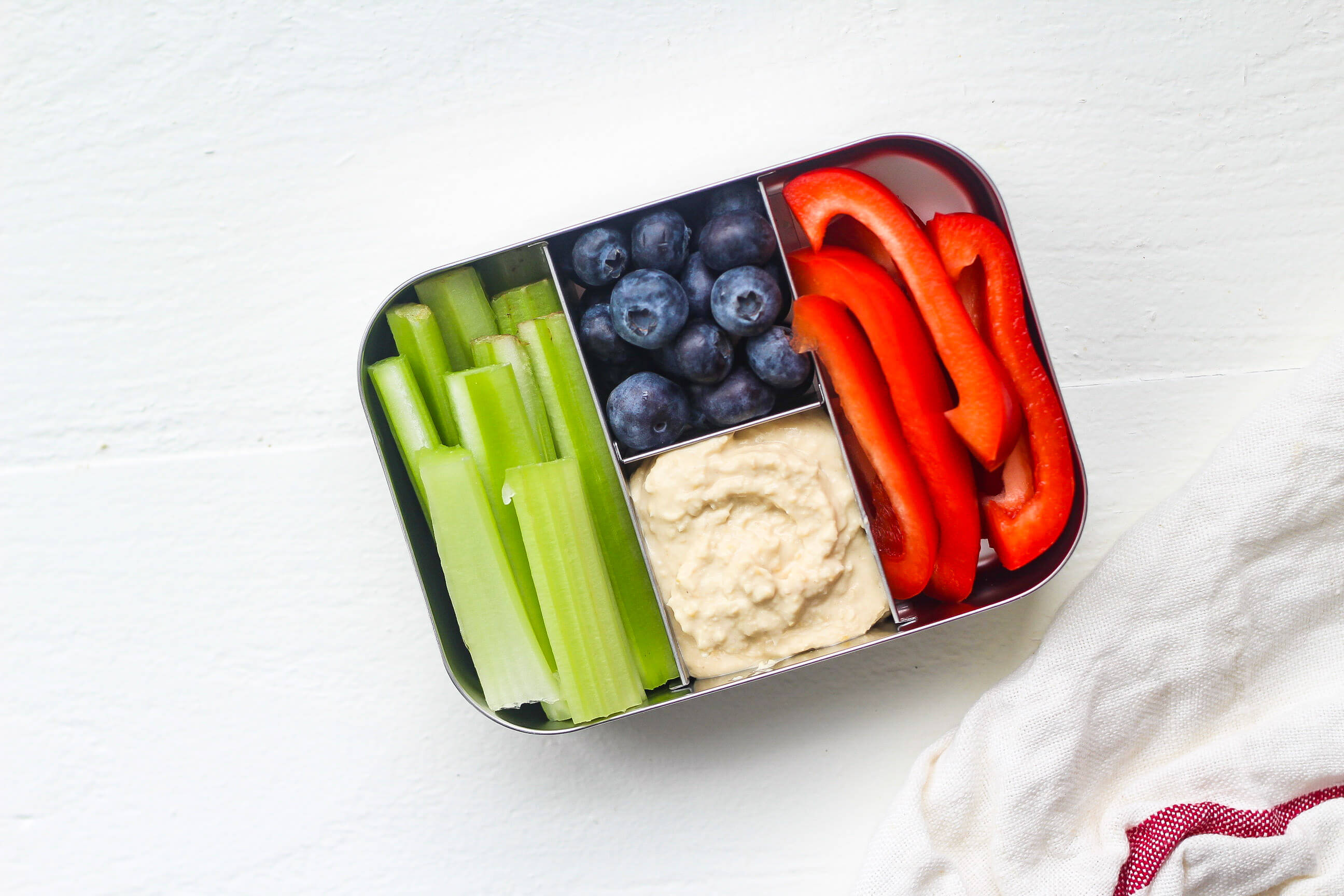
Dinner: Complex Carbohydrates & Soups
Expecting mothers often crave carbohydrates during pregnancy. That is why Dr. Romm loves adding our Lemon Pesto Penne to her client’s meal plans which helps meet those cravings with nutrient-dense complex carbohydrates.
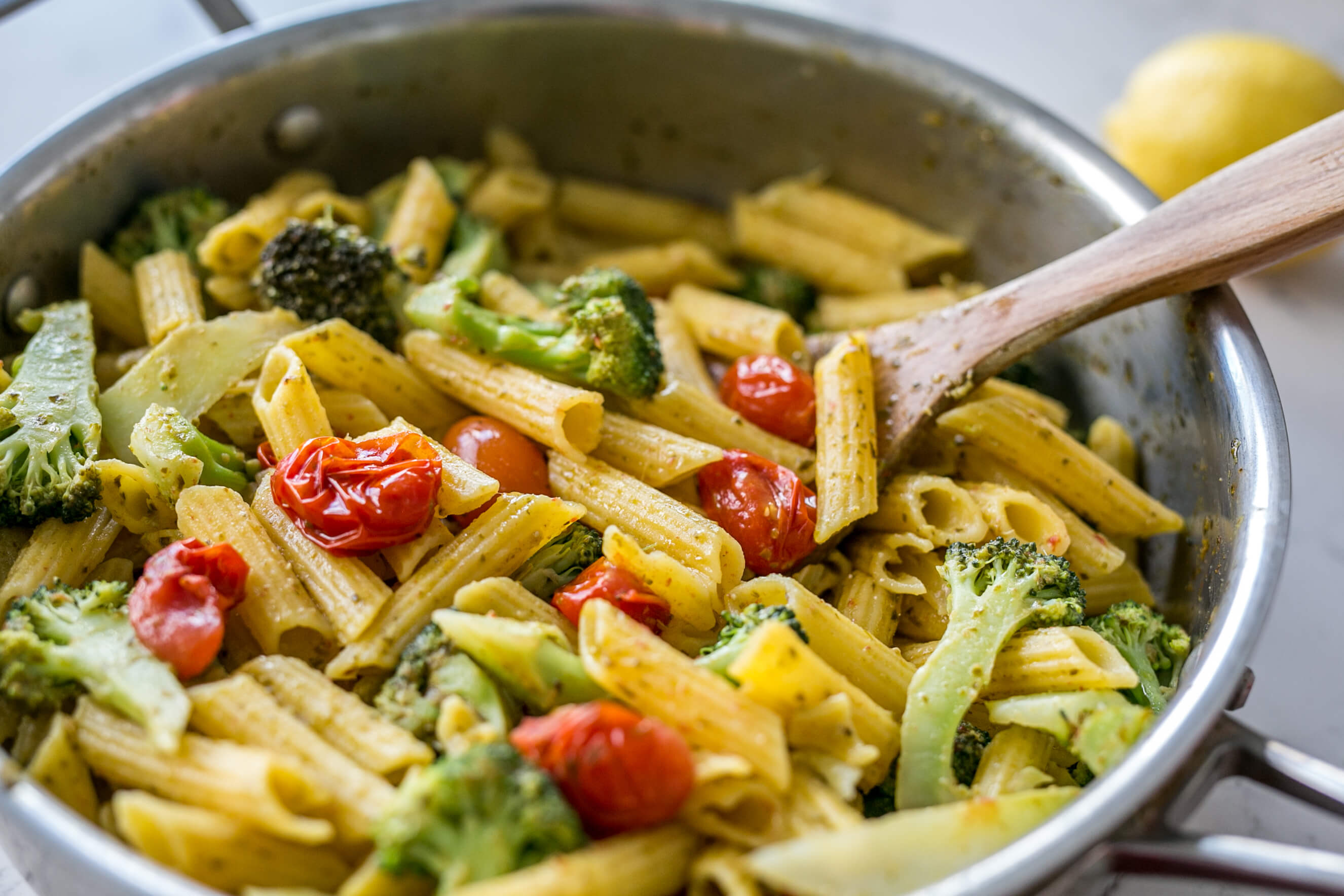
"Carbohydrates are actually really important in pregnancy for baby to get B vitamins. Pairing with vegetables as this recipe does can make veggies more palatable if women are struggling with their intake. So I make sure to provide recipes with complex carbohydrates that are not only comforting, but also deeply nourishing."
Dishes that can be batch prepared and last in the freezer, like our Coconut Chickpea Curry, are super important during prenatal preparations. Soups and stews can support healing, encourage breastmilk production and deliver essential nutrients.
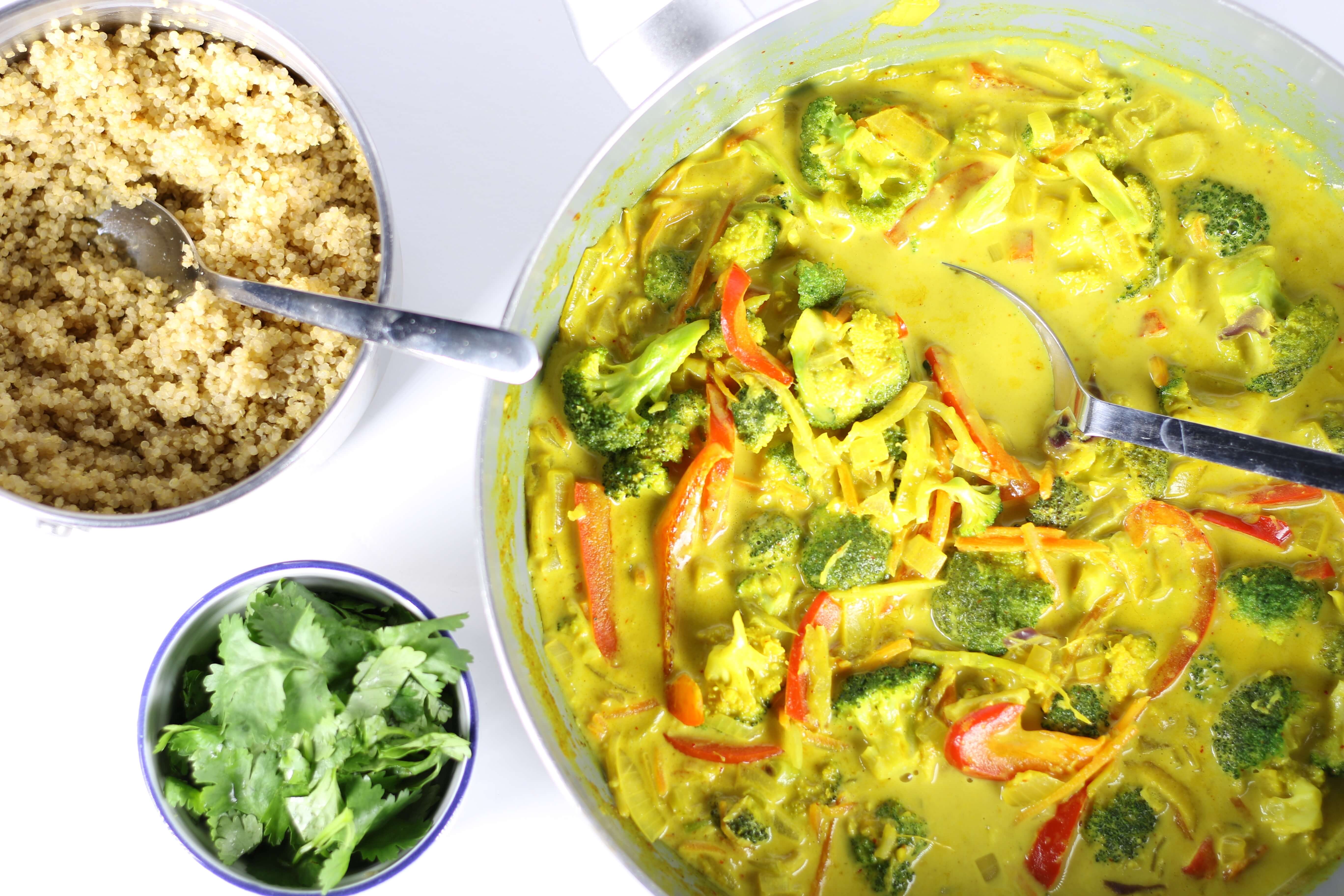
”Soups and stews are a traditional postpartum food to support healing and breastmilk production that also translate really well to pregnancy. Not only is it a vehicle for all you need in terms of protein, fat, and carbohydrates, but it packs wonderful anti-inflammatory and anti-nausea spices like ginger. Cooked veggies are also sometimes easier to tolerate if you are dealing with pregnancy-related symptoms.”
Want to learn more from Dr. Aviva Romm? Check out her website including online courses for health professionals here.

